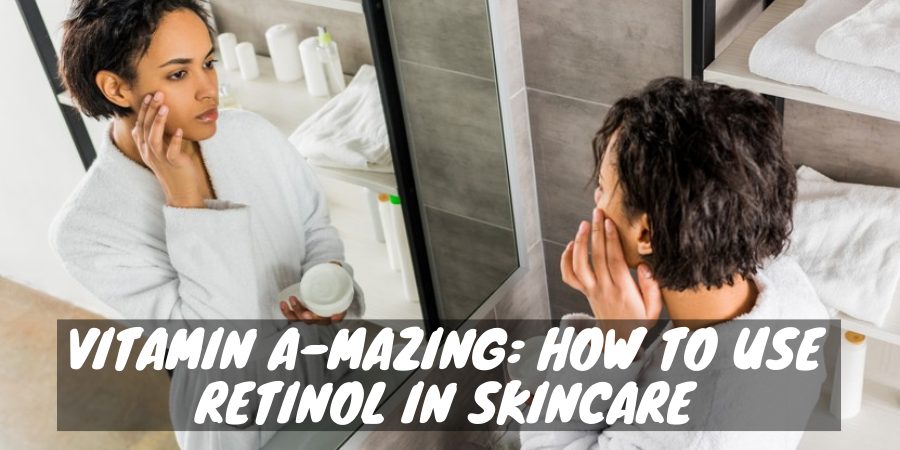Retinol is one of the buzziest ingredients in the skincare world.
It’s touted as a miracle cure for wrinkles, loss of elasticity, thinning skin, hyperpigmentation, age spots, acne and numerous other skin woes.
But can one ingredient really do all of these things?
And if so, how do you incorporate it into your skincare routine?
Read on to learn everything you need to know about retinol in skincare.
What Is Retinol?
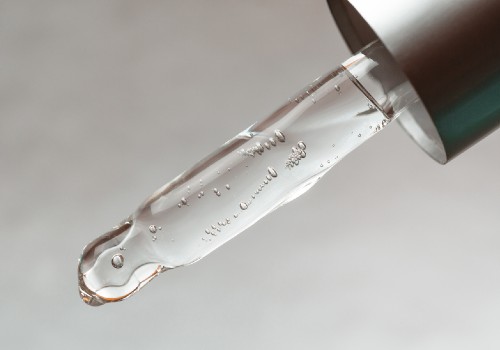
At its core, retinol is a derivative of vitamin A — yes, the same vitamin A that you get from your fresh fruits and veggies.
It’s a type of retinoid, the catch-all term for vitamin A derivatives. Although many people use the two terms interchangeably, they’re two distinct things, as not all retinoids are retinols!
Vitamin A is essential for cells throughout your body, including your skin. Without it, your cells can’t turn over efficiently, resulting in a surplus of old, weakened cells and an insufficient supply of new, healthy ones.
Low cell turnover lies at the heart of aging. Old cells can’t repair themselves or hold their shape as well as new cells, resulting in wrinkles and other signs of aging.
When you consume vitamin A, your body automatically converts some of it into retinol to boost skin cell turnover. But as you age, this process becomes less efficient and effective, requiring you to provide your skin with supplemental retinol.
That’s why retinol is found in so many skincare products, especially anti-aging products. It’s the foundation of your skin’s strength, longevity and overall health.
What Are the Benefits of Retinol?

Retinol is truly a jack of all trades. Its benefits cover just about all aspects of skincare — here are the most notable.
Increased Collagen Production
Collagen is the protein that holds your skin together. Thick, tough and elastic, it makes your skin resilient, plump and youthful.
But collagen production decreases dramatically as you age — around 1% a year starting in your 20s. This results in loose, sagging, wrinkly skin that’s more susceptible to damage.
Retinol fuels your skin cells to produce more collagen. Over time, this smooths out wrinkles, erases fine lines and firms up your skin to make it look, feel and be healthier.
Higher Cell Turnover Rate
As discussed above, your skin cells continuously replace themselves as they become old and weak. This process of cell turnover slows as you age, so old cells stick around longer and fewer new ones are produced to replace them.
Retinol encourages your cells to turn over more quickly, strengthening and tightening your skin. Higher cell turnover can also help fade scars, reduce hyperpigmentation and brighten your complexion.
Reduced Severity and Frequency of Acne
In addition to stimulating your cells, retinol is great at exfoliating your skin. Removing dead skin cells reduces dullness and clogged pores, but it’s especially effective at controlling acne.
Acne-causing bacteria feed on dead skin cells, so if you remove that food source, the bacteria will die. Retinol makes these dead cells less sticky so they fall off more readily, thus greatly reducing your breakouts.
Increased Protection Against Free Radicals
Free radicals are molecules that form in your skin in response to stress, sun exposure, poor diet and environmental pollution.
They steal electrons from other molecules in your skin, causing reduced cell turnover, cellular dehydration, rapid aging and overall weak, unhealthy skin.
But retinol is an antioxidant, which means that it’s able to provide free radicals with electrons without becoming unstable itself. As a result, the free radicals are neutralized and your skin cells remain unharmed.
Over time, using retinol will prevent your skin from accumulating free radical damage, keeping it healthier for longer.
Is Retinol Safe?
When used properly, retinol is safe and effective on any skin type. It has been extensively studied and approved by the FDA for use in skincare products.
However, there are some side effects that you should be aware of, especially if you have sensitive skin.
The main side effect of retinol usage is increased sensitivity to UV light. If you use retinol, it’s best to apply it at night and wear sunscreen every day to avoid sun damage.
It’s also common for the skin to become red, flaky, dry or irritated in response to retinol, especially during the first few weeks of use. This is known as a “purge” and is normal — your skin needs time to adjust to the retinol and get into its new cell turnover routine.
Those with fair or sensitive skin tend to experience more side effects. If you fall into these categories, start with the lowest possible dose of retinol to minimize your risk.
What’s the Right Age to Start Using Retinol?
In the past, most people have started using retinol in their 30s.
But while it’s never too late to start, many dermatologists now recommend starting retinol in your mid-20s — the age when your body begins producing less collagen.
Rather than waiting until you start noticing significant wrinkles, fine lines or blemishes, consider getting a head start on your anti-aging.
Preventing the signs of aging is easier than reversing them, so there’s never been a better time to start retinol than right now.
What Is the Best Form of Retinol?
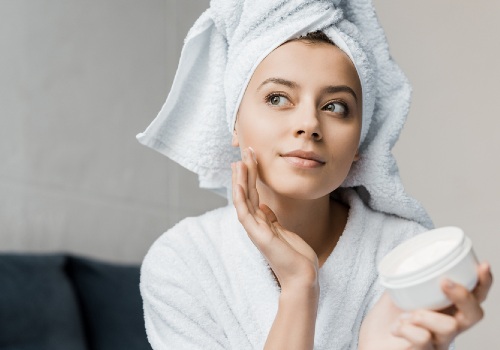
When choosing a retinol product, there are two main factors to consider: the type of product and the concentration of retinol.
Retinol Product Types
Most retinol products come in the form of serums or creams.
Serums are thick liquids that are typically applied after cleansing and toning but before moisturizing. They’re usually highly concentrated and are less likely to set off oily skin than creams are..
Creams tend to be more moisturizing than serums, so they’re excellent for those with dry skin. However, they also tend to be stickier than serums and may leave more of a residue on your skin.
Retinol can also be found in some sunscreens, but since retinol increases your UV sensitivity, it’s better to use a standalone retinol product at night.
Retinol Concentrations
When you’re first starting out with retinol, the weaker the concentration, the better.
Retinol is an extremely powerful ingredient that can be irritating to the skin, so start out gentle and gauge how your skin responds. You can then move on to higher, more effective concentrations as your skin adjusts.
Start with a 0.01% to 0.025% concentration, stick with it for a few weeks, then gradually increase the strength. Most people find their sweet spot between 0.03% and 0.05%, though you can go up to 0.1% if your skin can tolerate it.
Other Retinoids
Some people don’t respond well to retinol — either it’s too powerful or too weak. In these cases, other retinoids may be more suitable.
Hydroxypinacolone retinoate is a gentle retinoid with a lower risk of irritation than retinol. This makes it a great choice for those with sensitive skin or who are new to using retinoids.
Retinyl retinoate and retinyl palmitate are also easy on the skin, though they’re slower to take effect as your skin needs to do more work to convert them into the appropriate forms.
If you need something stronger than retinol, look into retinaldehyde, also known as retinal (not the same as retinol — note the spelling difference). It’s one of the most potent over-the-counter retinoids available.
You can also ask your dermatologist about retinoic acid, also called tretinoin and retin-A. This is a prescription-only retinoid that works very rapidly but can cause severe side effects, so you’ll need a doctor’s approval to use it.
How Do You Use Retinol?
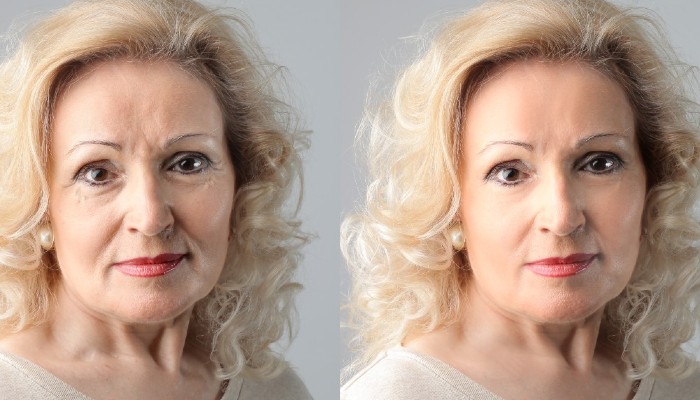
Retinol’s place in your skincare routine will depend on the specific products you use. But there are a few general guidelines that apply to most retinol products.
Apply Retinol at Night
You’ll want to apply your retinol at night, not in the morning. Retinol makes your skin more sensitive to the sun, so it should only be applied after you’re done with sun exposure for the day.
Applying retinol at night also makes it more effective, since your skin spends your sleeping hours generating collagen and turning over its cells. Giving it a dose of retinol before bed makes these processes more effective.
Gently Cleanse Before, Moisturize After
Since retinol can be irritating, make sure the rest of your products are as gentle as possible. Use a gentle cleanser first to give the retinol a clean slate, let it absorb, then follow up with a rich moisturizer to combat retinol-related dryness and lock it into your skin.
If you experience severe dryness after using retinol, you can try moisturizing before applying it. You can also mix the retinol into your moisturizer to reduce the drying effects.
Wear Sunscreen the Following Day
You should be wearing sunscreen every day regardless of whether you use retinol or not. But if you do use retinol, you should never, ever skip sunscreen the following day.
Retinol makes your skin extremely sensitive to the sun for a short period following application. You’re more likely to burn, dry out and experience sun damage the day after using retinol.
Protect your skin by wearing a broad-spectrum, SPF 30+ sunscreen and reapplying it every 2 hours. This will allow the retinol to help your skin rather than hurt it.
How Often Should You Use Retinol?
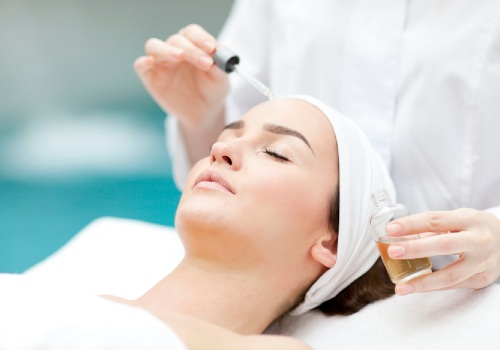
It’s important to start slow when using retinol. Use a low concentration and apply it once or twice a week for several weeks until you know your skin can handle it.
Once your skin has adjusted to the retinol, you can start applying it more often or use a higher concentration — never make both changes at the same time, though.
Retinol can be safely applied up to every other day, with most people finding that three times a week is sufficient.
Avoid applying retinol to broken or irritated skin, as it will only make the irritation worse. For the same reason, don’t use it the day before you exfoliate — your skin needs a break from harsh treatments.
How Long Does It Take to See Results from Retinol?
Most people notice results from retinol within 4 to 6 weeks, though it can take up to 12 weeks to see improvement if you’re using it to treat acne.
The longer you use retinol, the stronger the effects will be. It can take several months for collagen production to increase after starting retinol, so it’s important to stick with it even if progress seems slow.
Higher concentrations of retinol will work faster than lower concentrations, but that doesn’t mean you should use stronger products if you don’t see immediate results. Give it time and consistency, then increase your concentration if you’re not satisfied after 6 months of use.

